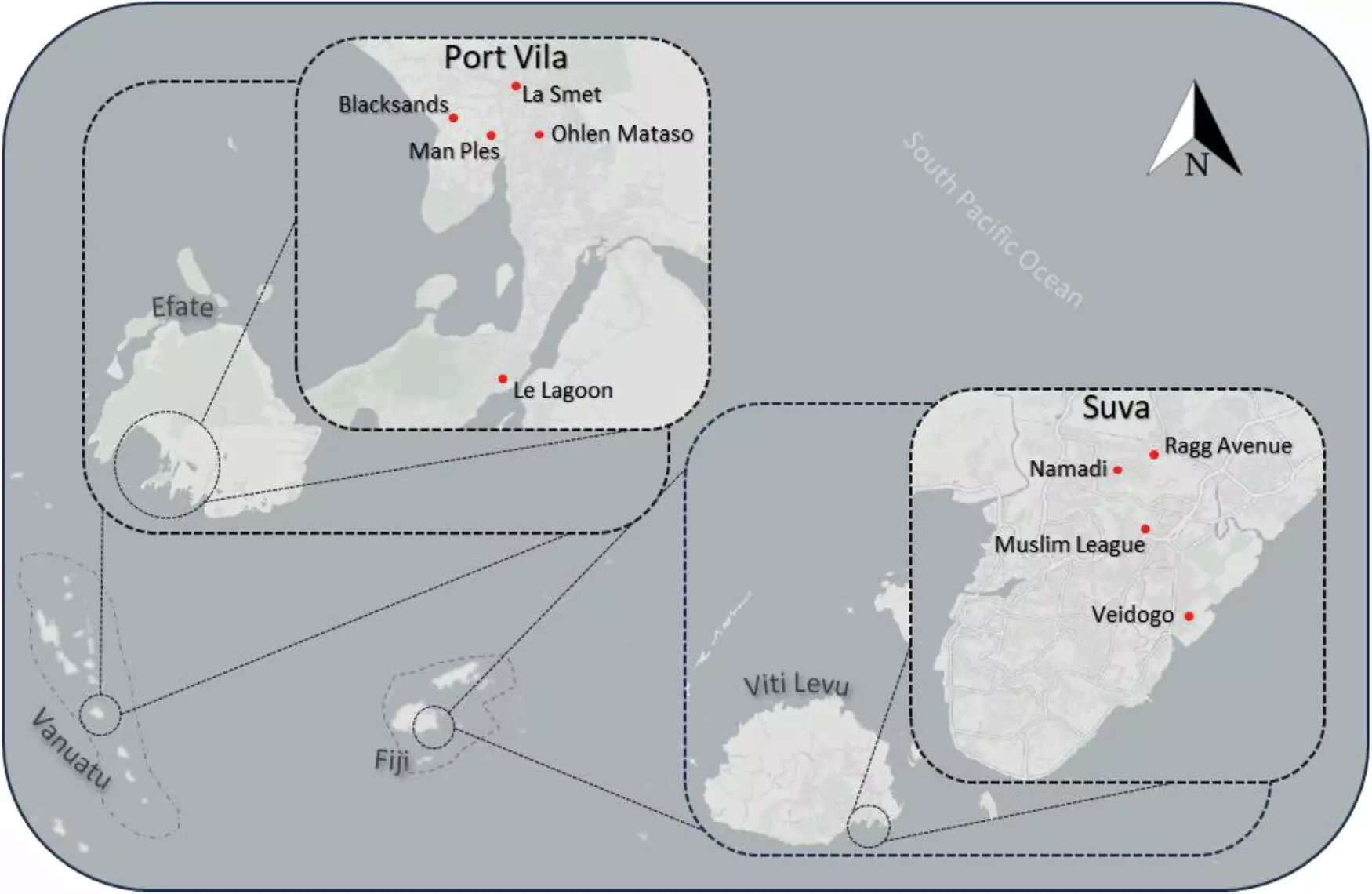The Pacific Islands are often imagined as idyllic locales, characterized by their stunning landscapes and tropical allure. However, beneath this facade lies a pressing public health crisis that threatens the well-being of countless residents. Informal urban settlements across various Pacific nations reveal a stark reality: nearly half a million individuals lack access to proper sanitation facilities. This situation is more than just an inconvenience; it is a significant barrier to health, education, and economic opportunities, particularly affecting vulnerable groups such as women, children, the elderly, and individuals with disabilities.
An Urgent Call for Action: Findings from Fiji and Vanuatu
A recent study published in the journal npj Clean Water sheds light on the critical state of sanitation in informal urban settlements in Fiji and Vanuatu. Working alongside the University of the South Pacific, researchers conducted an in-depth survey of 393 households situated in nine informal settlements in the capital cities—Suva and Port Vila. The cramped living conditions in these areas stem largely from a shortage of affordable housing, prompting residents to settle on unplanned land. Here, they frequently face inadequate access to essential services, including secure sanitation.
The findings from the study paint a sobering picture: while piped water is accessible, an alarming majority—up to 100% in certain settlements—still rely on unsafe sanitation practices to dispose of human waste. Many households resort to makeshift solutions, such as primitive dry pits or cesspits, which lack any plumbing or running water for flushing. The waste disposal methods employed in these informal settlements often remain onsite, exacerbating the risk of environmental and public health crises.
Compounding these issues are the environmental challenges faced by residents of informal settlements. Unexpected and extreme climate events, such as cyclones and heavy rain, frequently disrupt access to functioning toilets, with an estimated one-third of households losing this vital facility during such events. The study highlights a concerning statistic: dry pit systems face four to eight times greater odds of damage during climatic events compared to their water-based counterparts. This vulnerability jeopardizes the sanitation systems that people rely on for health and safety.
Local management of waste is another critical challenge. Even when functional toilets are present, there is often no safe or sustainable mechanism to deal with the waste accumulation. Several households are found disposing of sludge in open spaces or allowing it to enter local water bodies, creating potential health hazards and contaminating water sources. This lack of proper waste management compounds public health risks, as polluted water supplies can lead to the proliferation of diseases like diarrhea, which is particularly deadly for children.
A striking contrast arises between general sanitation statistics and the realities within informal urban settlements. While data from the World Health Organization and UNICEF suggest that only 3% of urban populations in Fiji and Vanuatu rely on unsafe sanitation, the situation in informal settlements indicates a much higher dependency on unsafe practices. This disparity underscores the necessity for improved data collection and monitoring systems that differentiate informal settlements from formally laid-out urban areas.
Holistic Solutions for Sustainable Sanitation
To address the sanitation crisis in the Pacific Islands effectively, there is a need for a multi-faceted approach that transcends mere toilet provision. Solutions must include comprehensive sanitation management throughout the service chain—from waste removal to treatment and disposal—all while ensuring resilience against climatic events. This demands capacity building within local communities, empowering service providers, maintaining systems, and promoting community stewardship to guarantee sustainability over the long term.
The complexities inherent in providing these services in informal settings cannot be overstated. Land tenure issues and inadequate infrastructure often complicate the task for service providers, isolating these communities from the support they desperately need. However, with a significant portion of urban populations residing in informal settlements, it is clear that finding viable methods to manage sanitation effectively is paramount.
A Path Forward: Aligning With Sustainable Development Goals
The United Nations’ sixth Sustainable Development Goal aims to ensure availability and sustainable management of water and sanitation for all. Rectifying the sanitation crisis facing the Pacific Islands is not solely a public health imperative; it is also about restoring dignity to individuals, reinforcing community livelihoods, and bolstering resilience in the face of an increasingly unpredictable future.
As the pressing need for action becomes more evident, addressing these issues holistically will be key to transforming the sanitation landscape in the Pacific Islands and ensuring that all individuals, regardless of their living conditions, have access to safe and secure sanitation services. The journey ahead is challenging, yet it is one that holds the potential to significantly improve the quality of life for countless residents, while also safeguarding the environmental integrity of these treasured islands.

